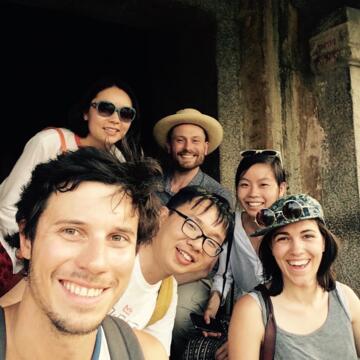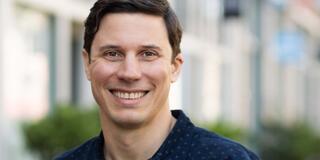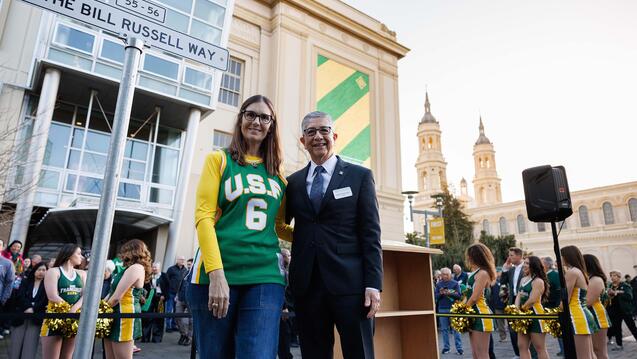
Behind the Largest Privately Funded RCT in the U.S.: The Story of IDEC Alum Patrick Krause

From crushing grapes in Napa Valley to crunching numbers on the U.S.’s largest privately funded Randomized Controlled Trial (RCT) ever, Patrick Krause - now Data Director at Open Research - has built a career path illustrating the exciting journey of an IDEC alum.
Winemaking to Development Economics
Staying true to his central Pennsylvania roots, Patrick graduated from Bucknell University with a bachelor’s in economics and political science. Similar to many other fresh college graduates, Patrick felt what he calls “Peter Pan syndrome,” or a desire to see the world through an unconventional lens. Before joining the IDEC program, Patrick spent 5 years working in Napa Valley in winemaking. By bouncing through the northern and southern hemisphere’s harvest seasons, Patrick was exposed to a fresh and exciting new way to see the world. But throughout his work in wine, including a shift to construction management, Patrick maintained an interest in development economics. Seeking a way to align his work with his passions, the IDEC program offered him a pivotal moment to make a career change.

Patrick describes his introduction to IDEC as a moment of “serendipity”. He attended a prospective student's information session with Professor Bruce Wydick and left thinking that this was the “perfect transition point.” During his time in IDEC, Patrick explains that the program shaped his way of thinking and unlocked a new way to critically look at and interpret data.
“I think the program really unlocked my curiosity in a number of ways about why the world is the way it is and why people act the way they do. I got very interested in behavioral economics because of that—the theories about why we act the way we do. … Going through these papers we were reading in class and coming up with what I thought was a novel extension of this research idea with this data that we had access to, and building up that process was really fun. It really helped me build those muscles to think about problems more critically and how we can find the data we need to answer these big, longstanding questions.”
Patrick is particularly proud of his thesis, which used Demographic and Health Survey data on sex ratios. Working in collaboration with Professor Jesse Anttila-Hughes, he developed an interest in behavioral economics. Since he worked with secondary data for his thesis, Patrick joined a team of students in Delhi and Calcutta for his field research.
The Road to the U.S.’s Largest Privately Funded RCT
After graduation, Patrick worked at Berkeley’s Center for Effective Global Action (CEGA), as a teaching assistant to Professor Paul Gertler at the UC Berkeley School of Business, and at a startup. Through this varied career path, Patrick acquired diverse skills by quickly learning and adapting to new roles, identifying necessary knowledge, and relying on others for mentorship and guidance.
Now, at Open Research, Patrick manages the full data analysis pipeline for survey-enumerated data collection and reporting by connecting with their team of academic Principal Investigators (PIs). The Open Research Lab is a nonprofit social science research organization that originated as part of the legendary Y Combinator community and remains closely linked with the tech startup community and its distinctive approach. Here, Patrick has worked on the biggest privately funded RCT ever in the US.
“Our big project was the Open Research Unconditional Income Study, where we gave 1,000 people $1,000 a month for three years and tried to measure literally everything about their lives. We tried to look across 15 different topic areas—collect administrative data, survey data…We tried to measure a lot. The amount of data we've collected on these people compared to a lot of other contemporary studies is significant. One of the things we're really excited about as an org is to, in the very near future, make as much of this data publicly usable as we can without compromising any privacy concerns for our participants.”
Patrick emphasized that he looks forward to IDEC students being able to leverage this data for future theses. While working on projects like this, he acknowledges the skills he acquired in IDEC, including coding in Stata, econometrics, and critical thinking about causal processes.
A Message to IDEC
When asked if he had any advice for current students in the IDEC program, Patrick explained that it’s hard work that gets you through it. An underlying challenge to conducting research lies in the substantial amount of mundane work, but sticking to it and excelling in these areas will propel you forward into more engaging and fulfilling tasks in the future. In addition, he makes a point to highlight networking and focusing on your real interests as an essential part of the job search. “Continue to look for things that are interesting and challenging for you. Focus on the type of role you'd be working in, rather than the idea of what that is,” he says.
His message to prospective students considering pursuing an MS in International & Development Economics at USF is simple: “Go to the IDEC program”. He shares an appreciation for the faculty and “all the people there, it’s a really amazing program.”


